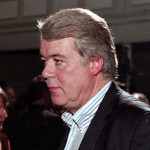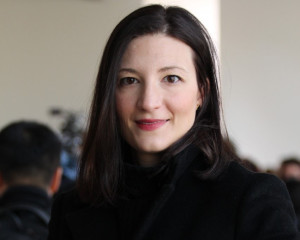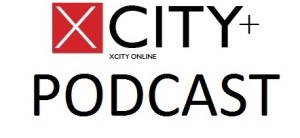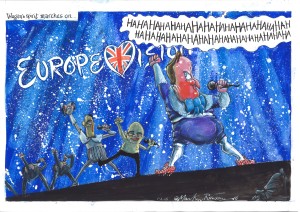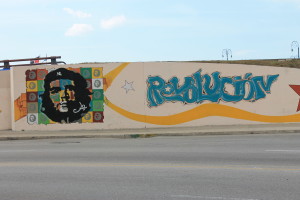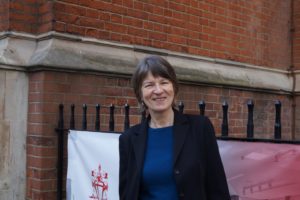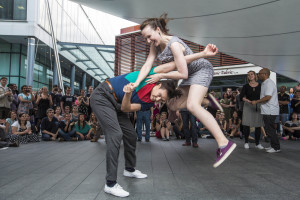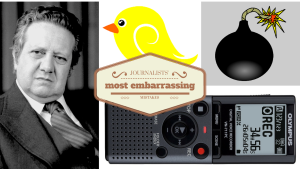
City journalism graduates have risen into media roles around the world, but it was a group of just 13 who carved the first path in October 1976.
At the time Cardiff was the only university to offer a postgraduate course. With 20 places for 300 applicants, there was clear demand for another.
The timetable set a trend that continues to the present day with a practical emphasis. Trips included attending Parliament and accompanying working journalists on police calls.
Some subjects taught then remain today including law, public administration and shorthand. Others, such as history and structure of the press, have fallen by the wayside.
At the end of the first year, the administration offered them 40 vacancies from which to apply. 10 went to newspapers, two to magazines, and one to work as a book researcher.
These interactive images show the students while on outings, with links illustrating their careers.
1. Visiting The Guardian offices in Farringdon, London.
If you can’t see the interactive image above then please view it on ThingLink
2. Listening to a GLC press officer at County Hall in Lambeth, London.
If you can’t see the second interactive image above then please view it on ThingLink
3. Being advised by the editor of The Sunday Times, Harold Evans, at the paper’s Gray’s Inn Road offices.
If you can’t see the third interactive image above then please view it on ThingLink
Unfortunately, two members could not be found in images.
Jon Slattery
Facts:
- Deputy editor of the Press Gazette 1993 -2006
- Comments independently on the media
Career:
Reporter, senior reporter, Lincolnshire Echo; senior reporter, news editor, deputy editor, Press Gazette; editor, publisher, blogger, jonslattery.blogspot.com; external examiner, London College of Communication; freelance media journalist (Press Gazette, The Journalist, InPublishing.co.uk, TheMediaBriefing.com)
Nigel Dudley
Fact:
Dudley is the editor of an international finance magazine, Camel5 Publishing
Career:
Reporter, Middle East Economic Digest; reporter, Finance Weekly; chief leader writer, The Daily Telegraph; writer, Middle East finance; writer, The European; consultant, Camel Publishing
Abiding memories:
Jon Slattery:
“Most of us smoked all the time. Jacky [Law] lit up in the middle of a mock training interview in the video studio.”
“We met Sir Harold Evans in his office at The Sunday Times. He thought we were a bit old to begin a career in journalism, having started on a local paper when he left school. Graduate entrants were an exception then. But Sir Harry was very charismatic and inspiring.”
“Drinking after hours at the Almeida Theatre bar in Islington after one of the course persuaded staff that Tom Walsh was the editor of The Times.”
Sarah Bayliss
“Tom [Walsh] kept us all in touch over the years. 10 of us still meet for supper in Upper Street [Islington] every year. We miss him – he was a wise and inspiring teacher who laughed easily. We had a great time on the course.”
Jacky Law
“Harry Butler [shorthand tutor]for loving something as dull as shorthand with such a curious passion”
Nigel Dudley
Having a suit that was “a rather revolting shade of yellow and looked even more disgusting after beer had been spilt on it. It was made of rather unpleasant man-made fibre (but what clothes were not then) and was flared.”
Mark Newham
“During my interview for a place on the course, I was confronted with an issue – what would I do if I found myself having to choose between my newspaper’s ‘agenda’ and my principles?
“This came back to bite me years later. I ended my freelance relationship with the magazine, Institutional Investor Magazine of New York, losing a well-rewarded ongoing commission in the process.”
Thanks to John Welsh, son of Tom Welsh, for help with research




